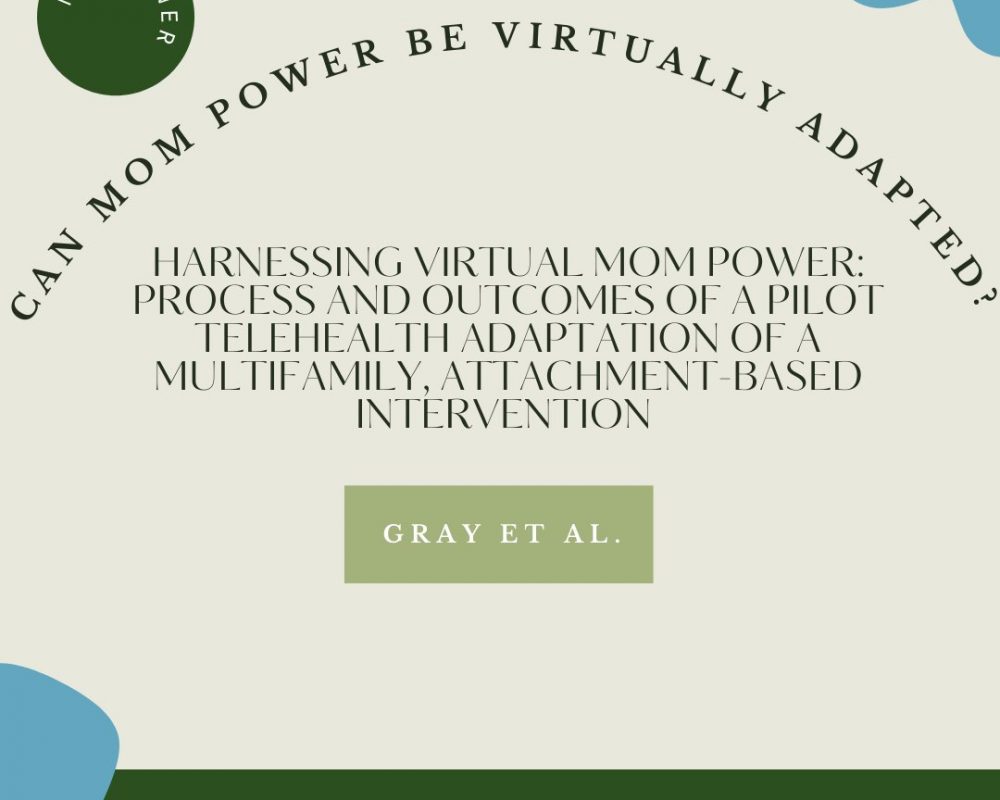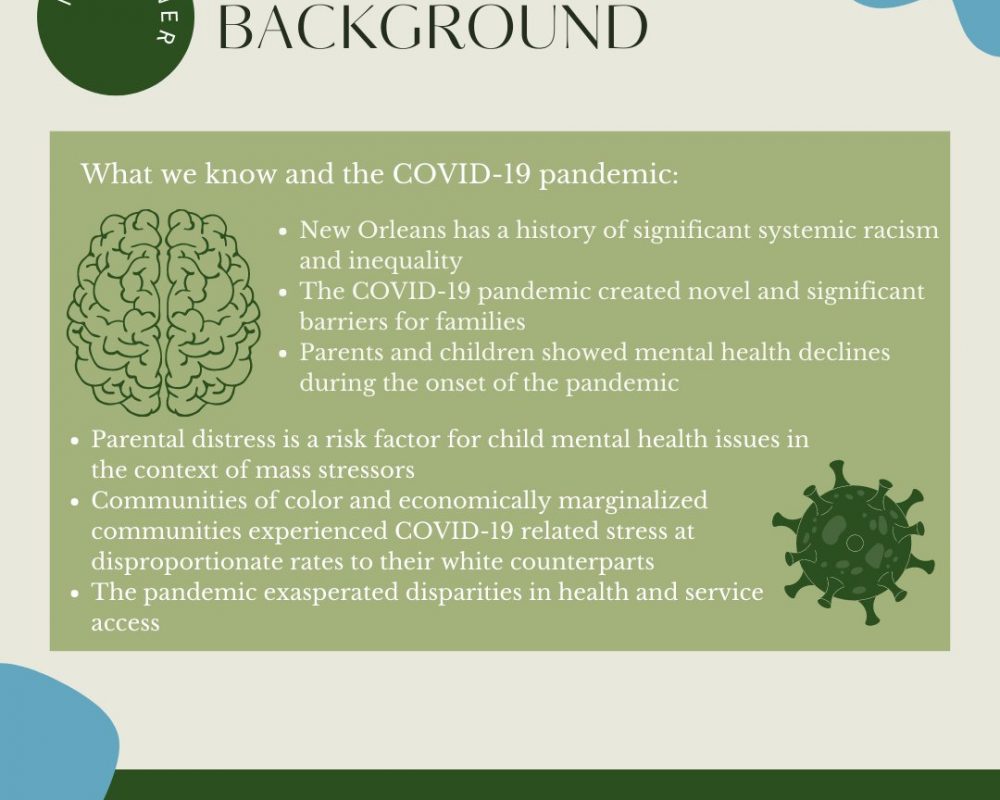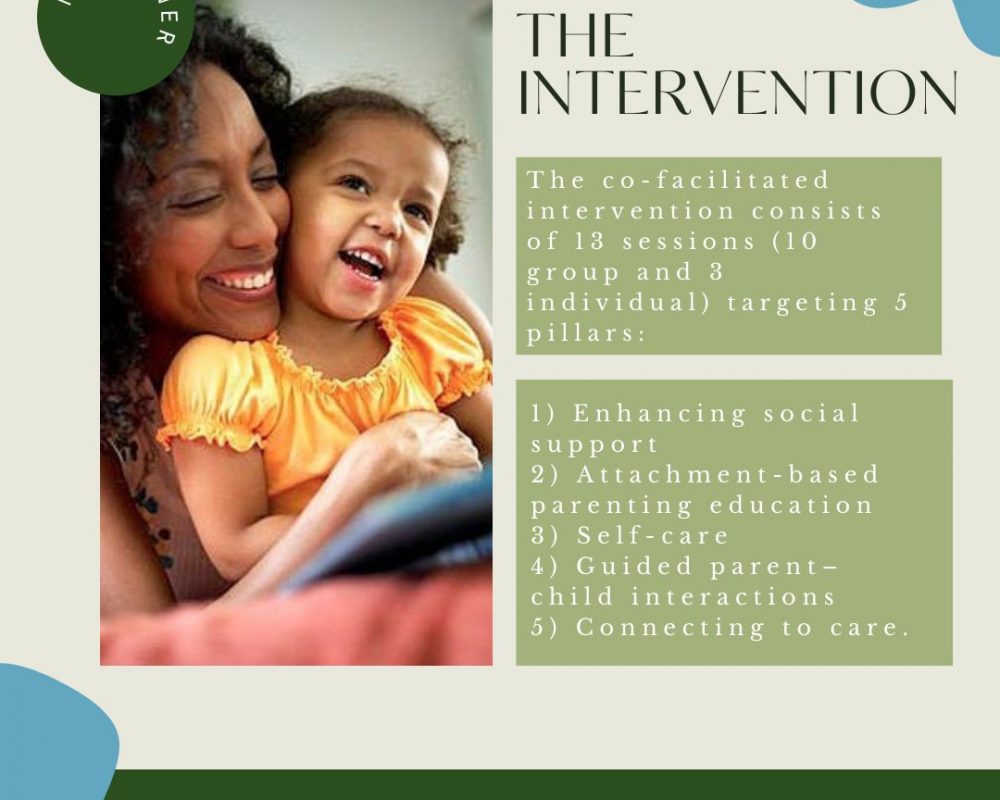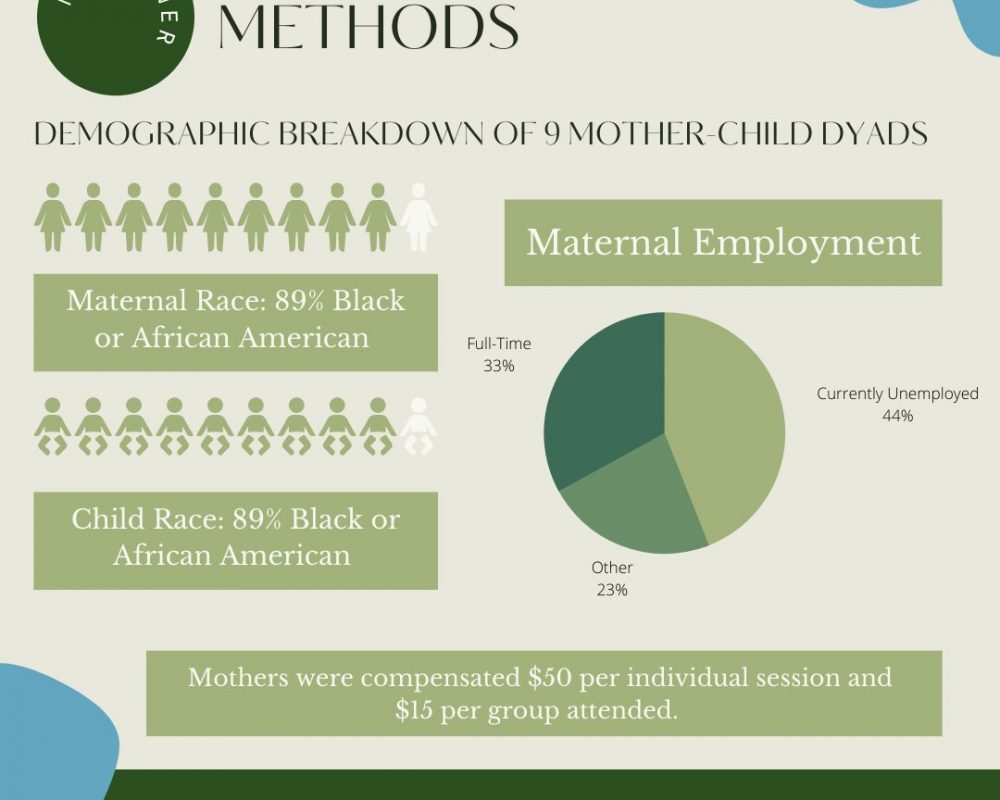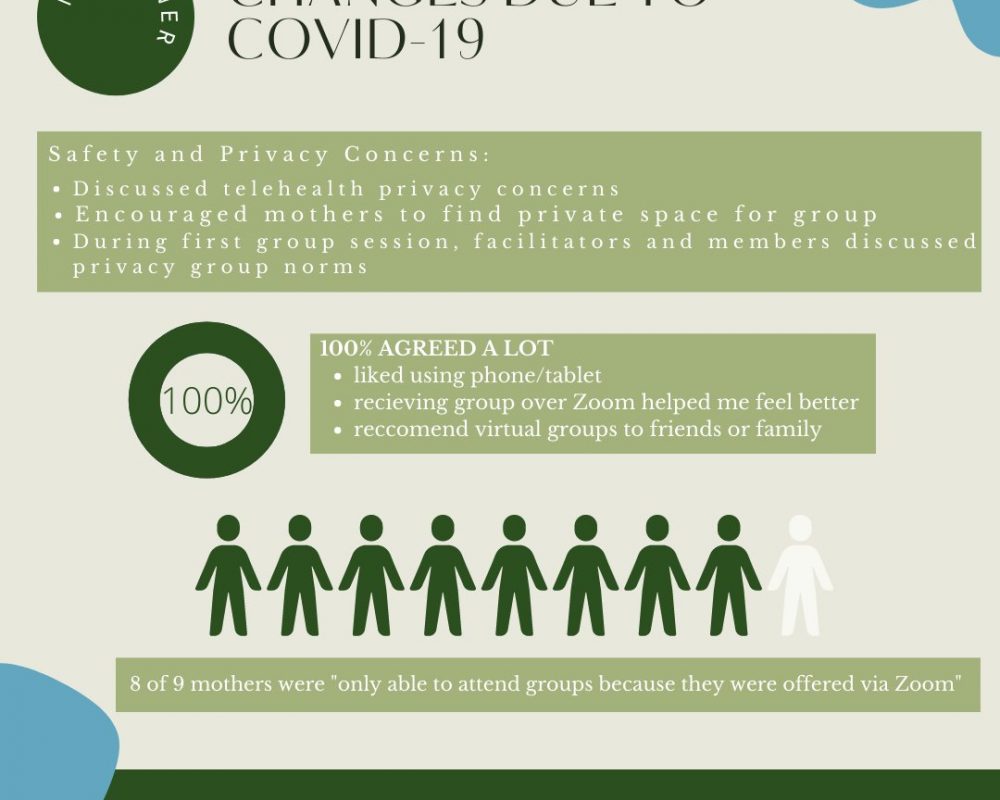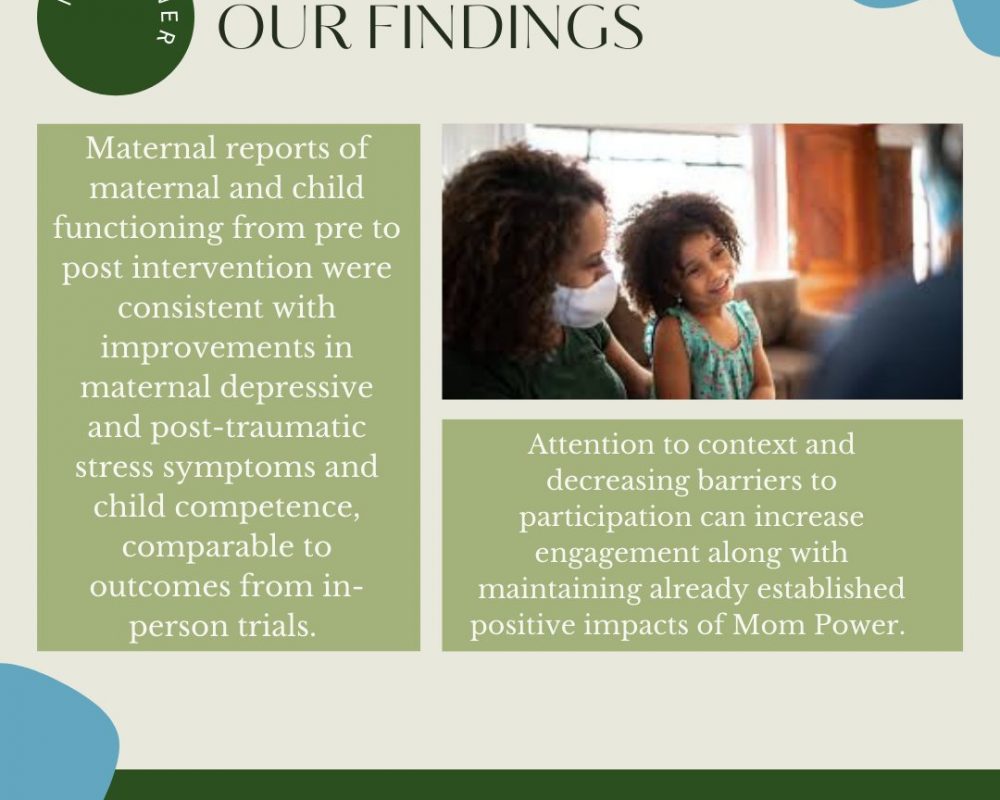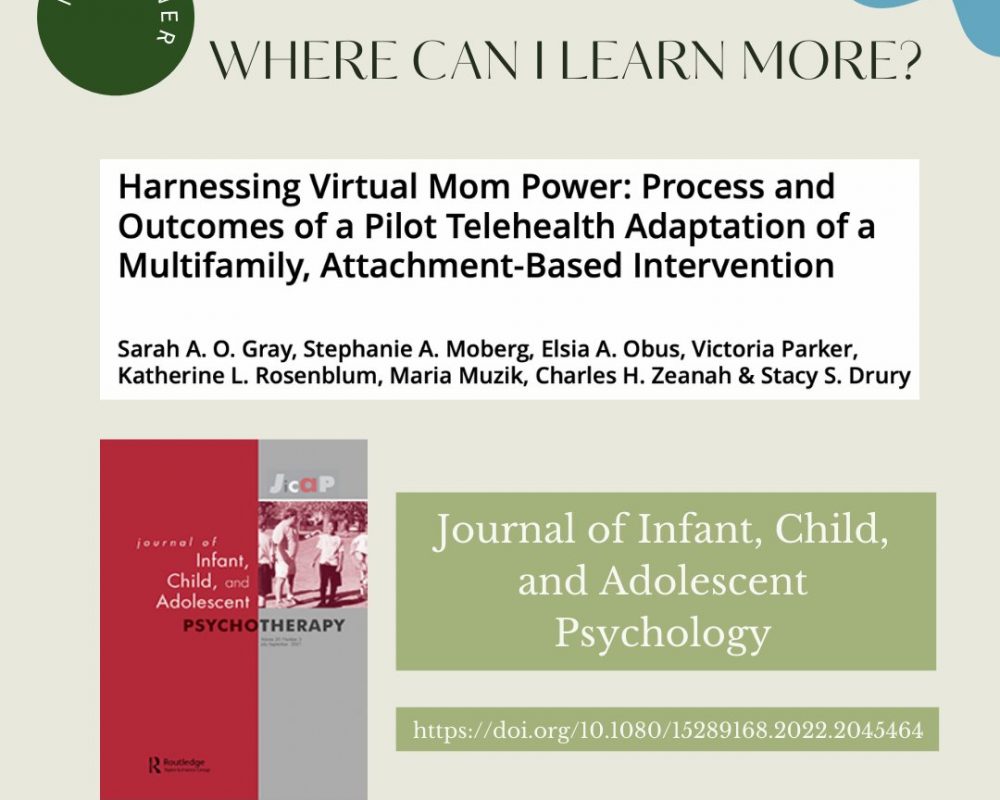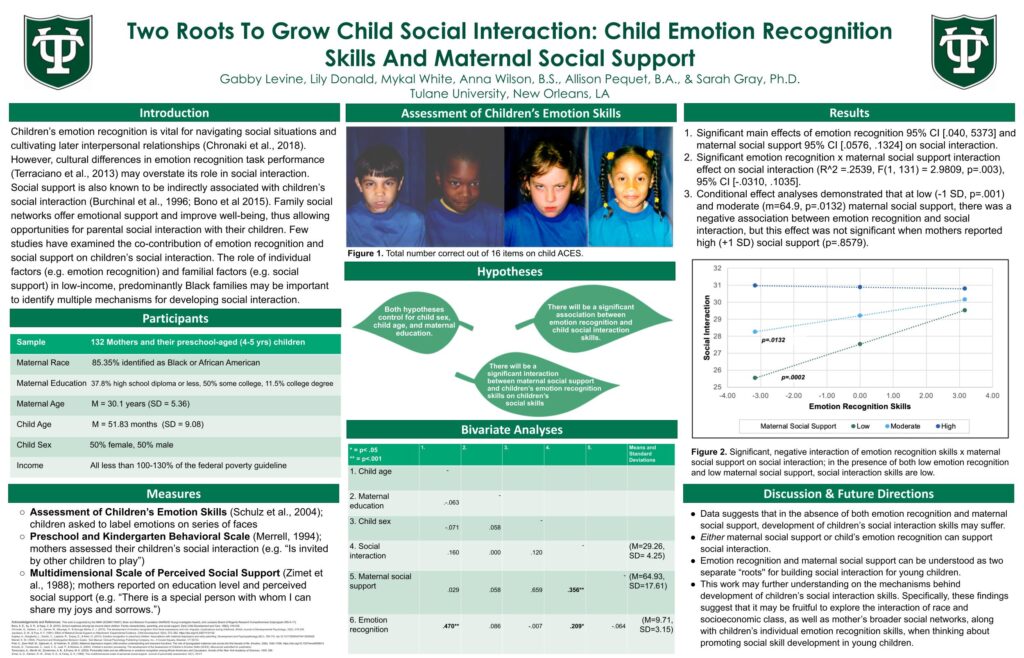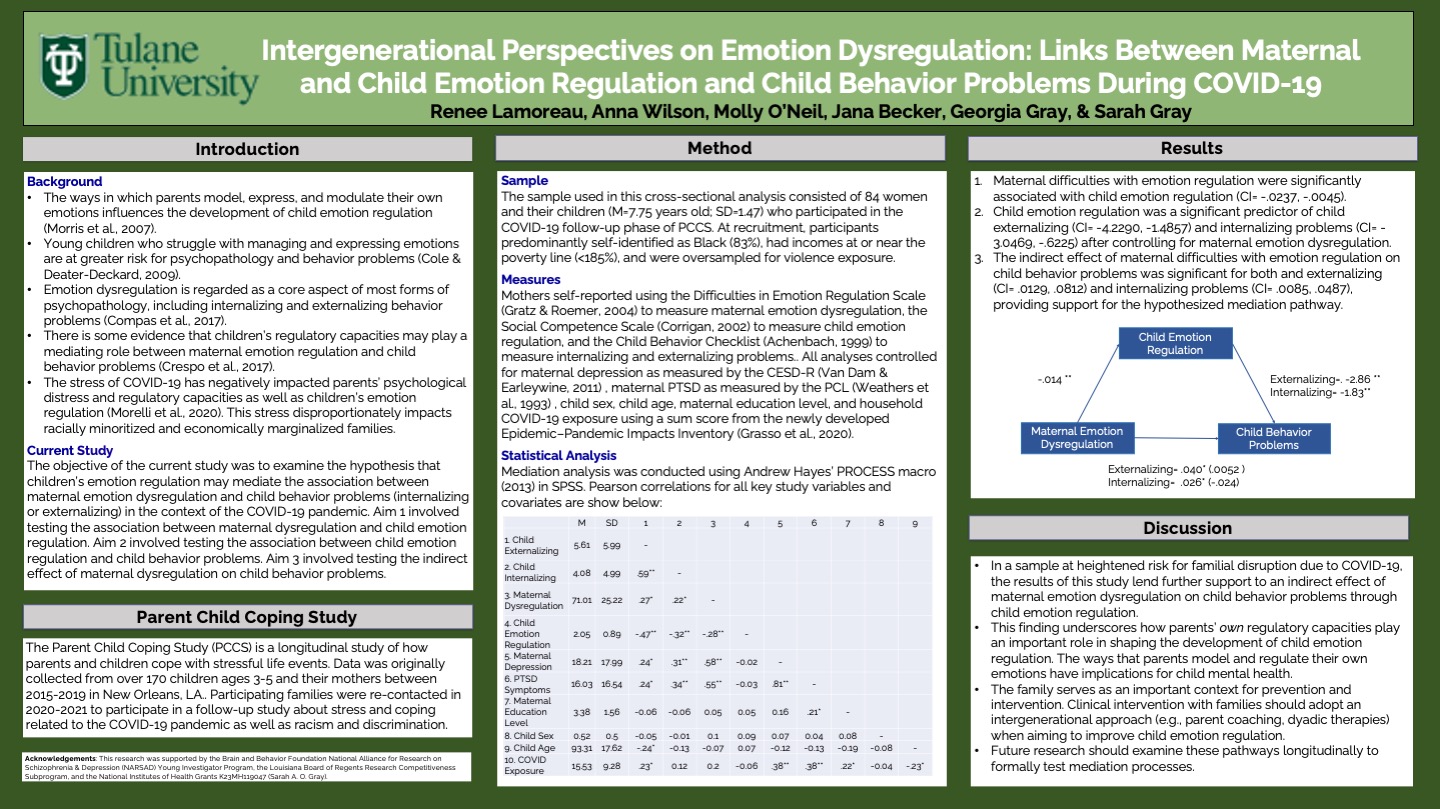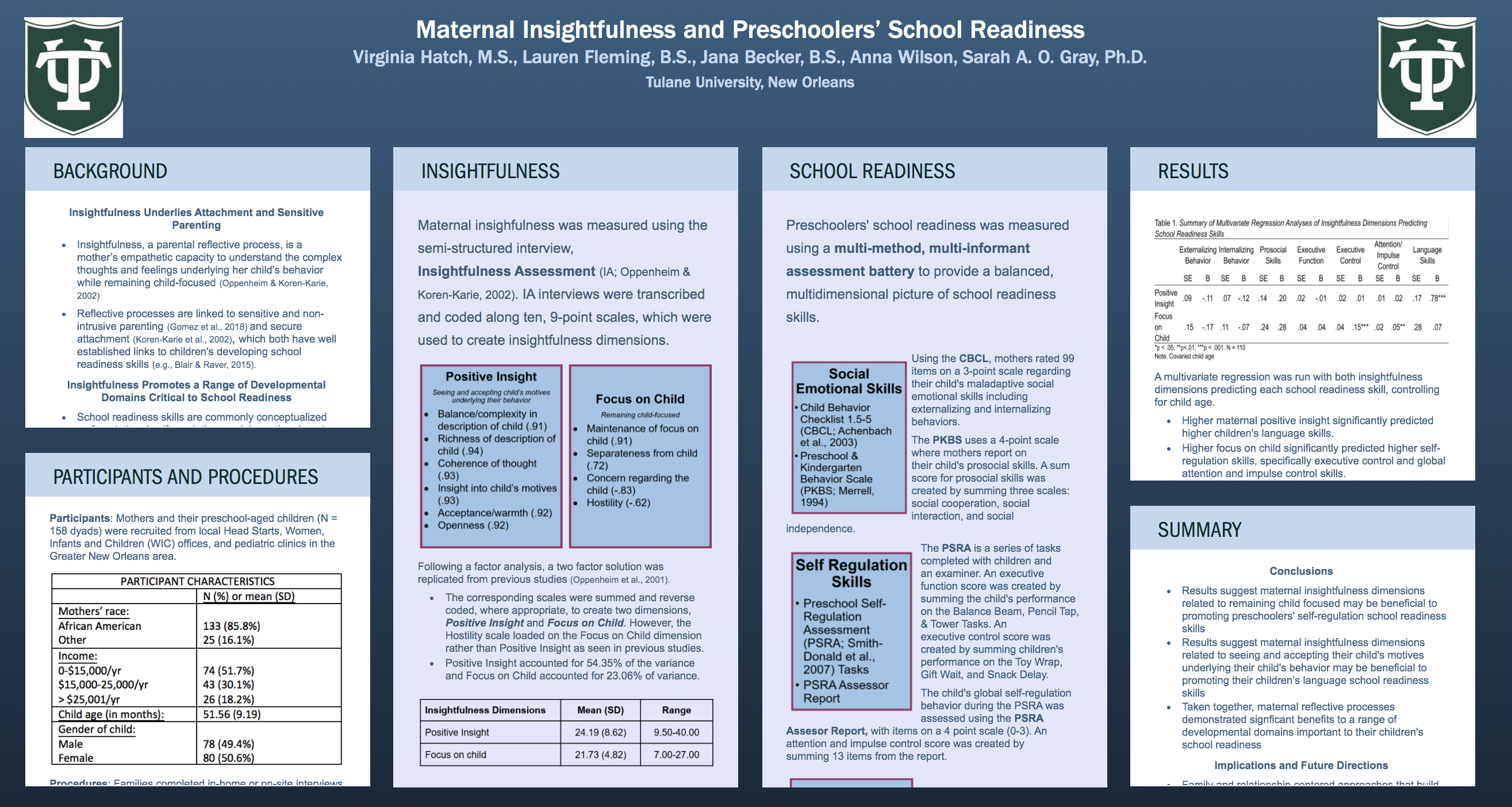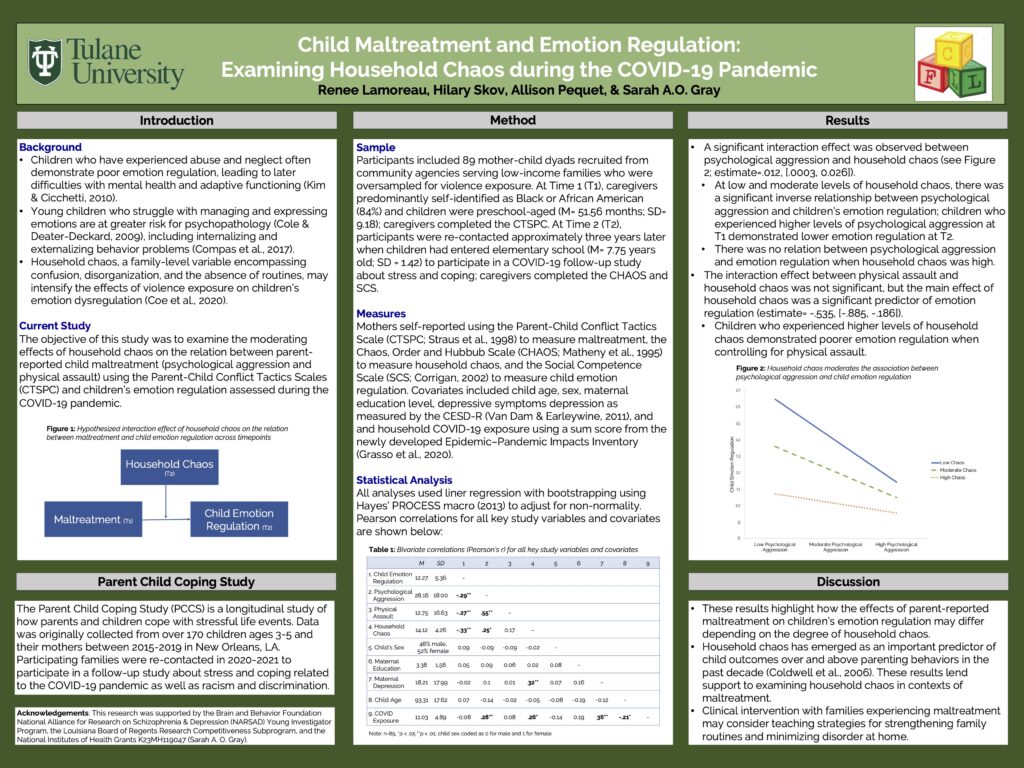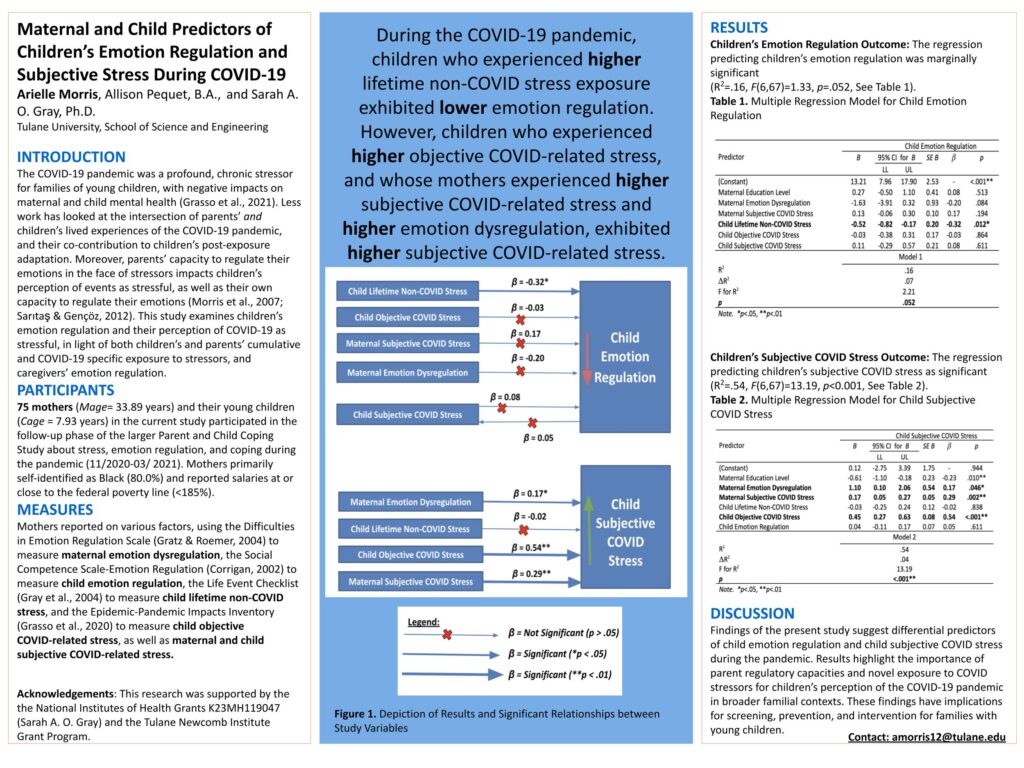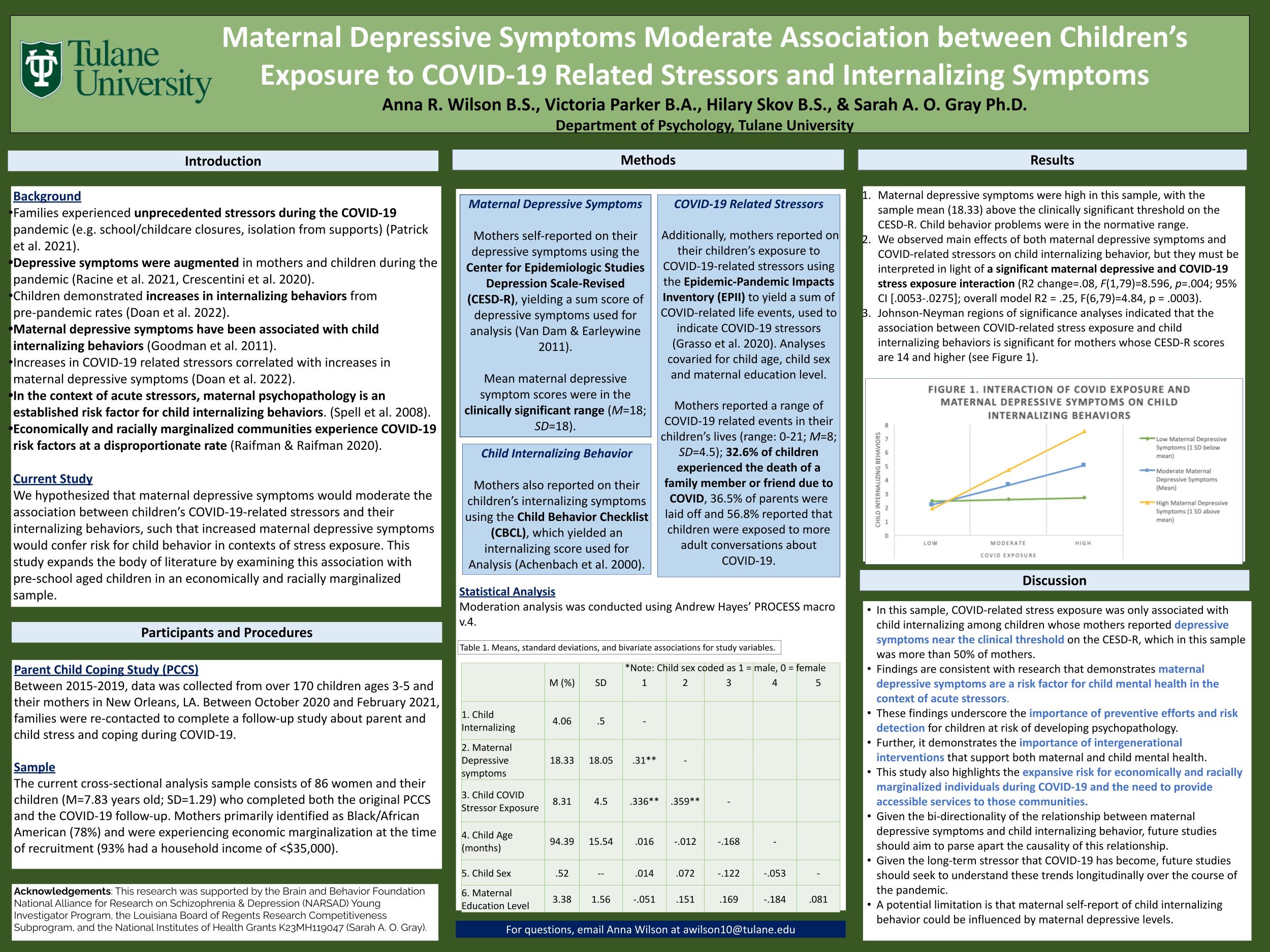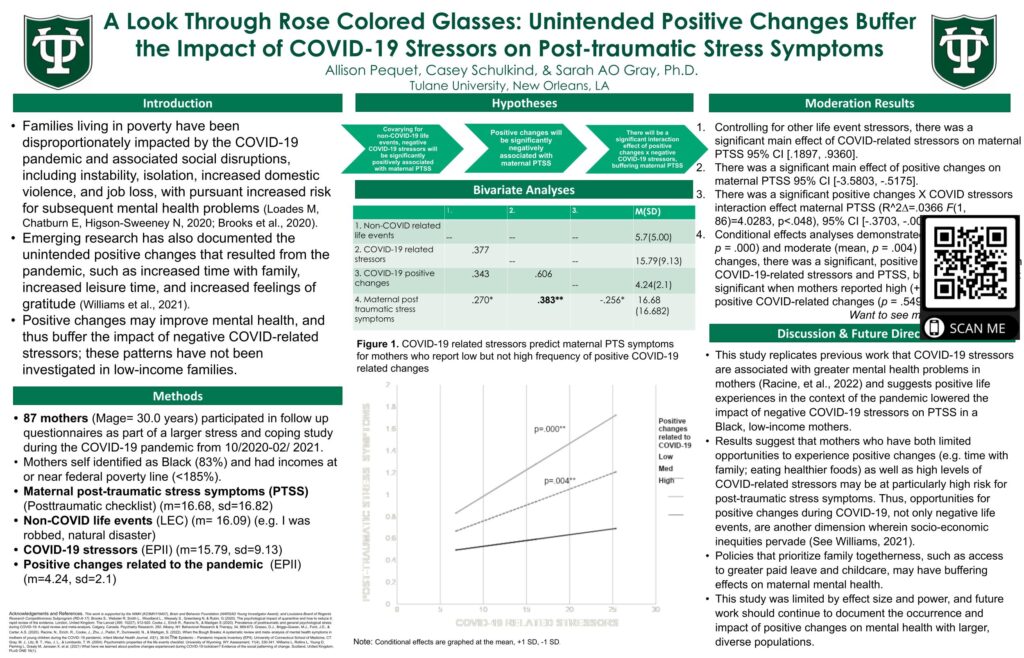Mom Power
We adapted this strengths-based, group intervention for moms and young children exposed to potentially traumatic events in New Orleans, Louisiana. This relationship-focused intervention aims to decrease mental health symptoms, parenting stress, and child behavior through targeting 5 key pillars, and we integrated trauma informed principles in our adaptation. We partnered with local Head Start centers to recruit mothers for this 10-week program and ran 4 groups in total from 2018 through 2023. We are currently completing 6-month follow-up data collection for the final round of mothers included.
Trauma-Informed Care in Virtual Mom Power
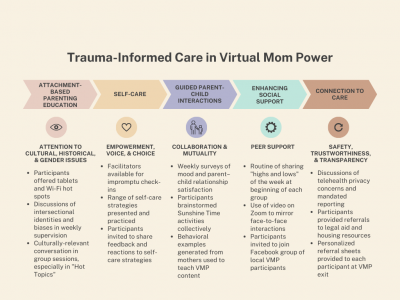
Preliminary Results from our Virtual Adaptation During COVID-19
Parent and Child Coping Study
In this study, we have been focused on understanding more about how parents and children cope with stressful life events, as well as what family and child factors support adaptation in the face of stressors. Several years back, we collected data with over 170 children ages 3-5 and their mothers. In light of the COVID-19 pandemic and national uprising against systemic racism, we followed up with mothers who previously completed this study. We asked them how they experienced stressors related to the COVID-19 pandemic and racism and discrimination and how they, their child, and their family coped. This COVID-19 follow up for The Parent and Child Coping Study is complete and we are currently analyzing the data.
PCCS Research
Stress and Coping in COVID-19: PCCS Follow-Up
To examine the impact of exposure to stress related to the COVID-19 pandemic, we followed up with participants in the Parent and Child Coping Study 3 years later. Further, we explored longitudinal and cross-sectional factors that may exacerbate or buffer against the consequences of these exposures. Learn below about biological, relational, and environmental risk and protective factors in a sample of mothers and young children in New Orleans, LA.
